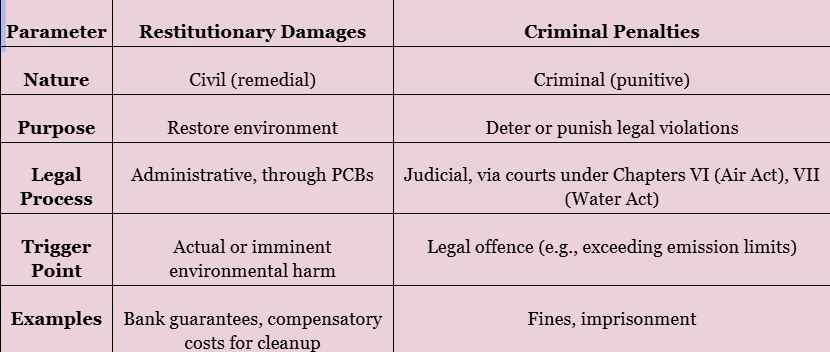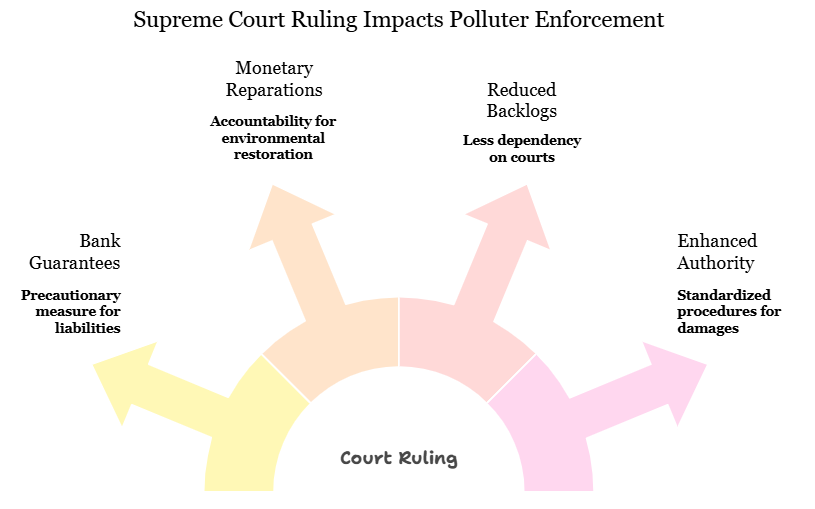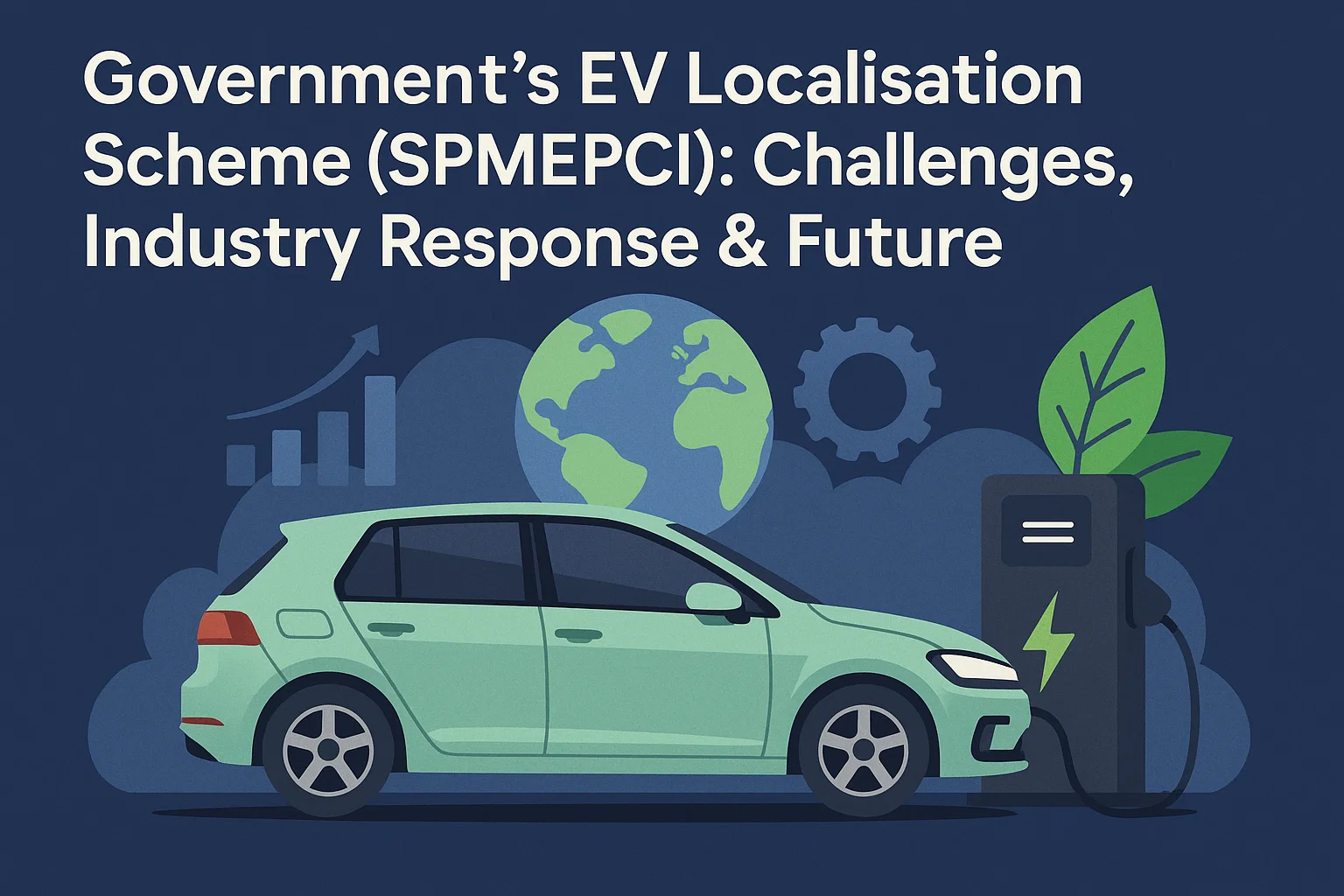Font size:
Print
Pollution Control Boards Gain Legal Power to Recover Damages Under Water and Air Acts
Pollution Control Boards Authorised to Enforce Restitutionary Damages: SC’s Landmark Judgment
Context: Recently, the Supreme Court empowered Pollution Control Boards to impose and recover restitutionary damages, enabling them to restore polluted air and water bodies to their original ecological condition.
What has the Supreme Court ruled regarding the powers of Pollution Control Boards under the Water and Air Acts?
- A two-judge bench of the Supreme Court ruled that Pollution Control Boards (PCBs) are legally empowered to:
- Impose and collect restitutionary and compensatory damages from polluters, and
- Demand bank guarantees as a preventive (ex-ante) measure to avert likely environmental harm.
- These powers flow from Section 33A of the Water (Prevention and Control of Pollution) Act, 1974 and Section 31A of the Air (Prevention and Control of Pollution) Act, 1981, which authorise PCBs to issue directions for preventing, controlling or abating pollution.
- This overturns a 2012 Delhi High Court judgment which held that only courts could impose such penalties, thereby restoring autonomy and remedial authority to the PCBs.
What are restitutionary damages and how has the Supreme Court clarified their application?
- The Court defined restitutionary damages as civil remedies intended to restore the environment to its pre-damaged condition, rather than punish offenders.
- The Court ruled that:
-
- Such damages can be ex-post (after damage) or ex-ante (in anticipation of likely damage).
- The PCB must first determine that actual or imminent harm to air or water has occurred before invoking this power.
- The damages can be in the form of fixed monetary compensation or bank guarantees for future restoration needs.
How do these restitutionary damages differ from traditional penalties?

How does this ruling reinforce the “polluter pays” principle and what are its broader implications for environmental governance in India?
The ruling firmly re-establishes the “Polluter Pays” Principle, a key pillar of Indian environmental law, which is: Statutorily embedded in the Water, Air, and Environment Protection Acts & Judicially upheld in landmark cases like Indian Council for Enviro-Legal Action v. Union of India (1996).

- Operationalising the Principle: The judgment provides enforceable tools—monetary damages and bank guarantees—for PCBs to make polluters fund environmental restoration, rather than taxpayers or future generations.
- Environmental Justice: Citizens’ Fundamental Right to a clean environment (Article 21) is now directly enforceable by PCBs, without needing PILs or court orders in every case.
- Decentralised Environmental Governance: State PCBs become more than passive monitoring bodies. They are now active environmental regulators, capable of issuing time-bound compliance orders, enforcing restoration through financial mechanisms, Acting preventively, not just reactively.
- International Alignment: The ruling aligns India with global best practices under: Rio Declaration (Principle 16) – Polluter Pays, Paris Agreement – Emphasis on national enforcement of environmental safeguards & UN SDG 13 & 15 – Climate action and life on land.


